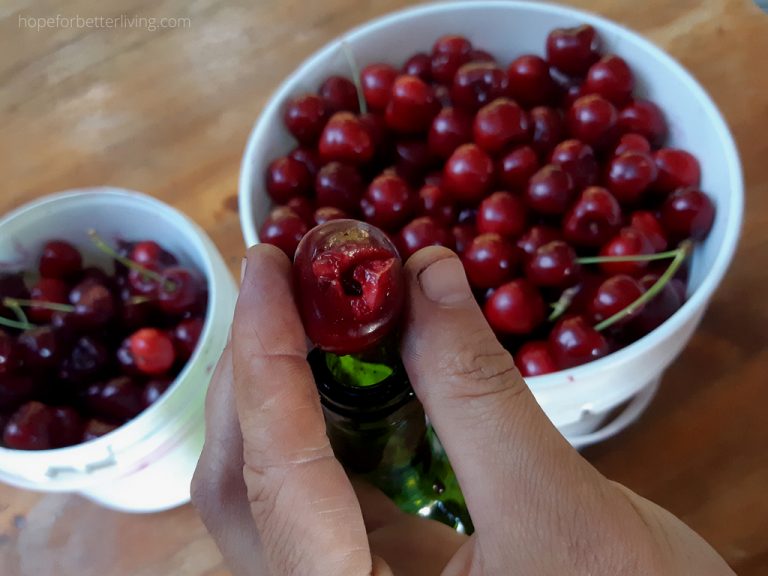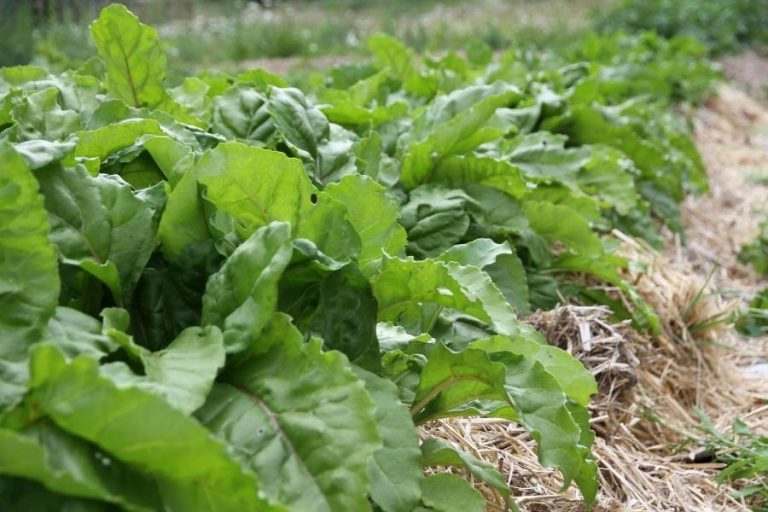Easy Way to Freeze Fresh Blueberries for Later
Here's an easy way to freeze fresh blueberries for later use in the kitchen. No flash freezing required!
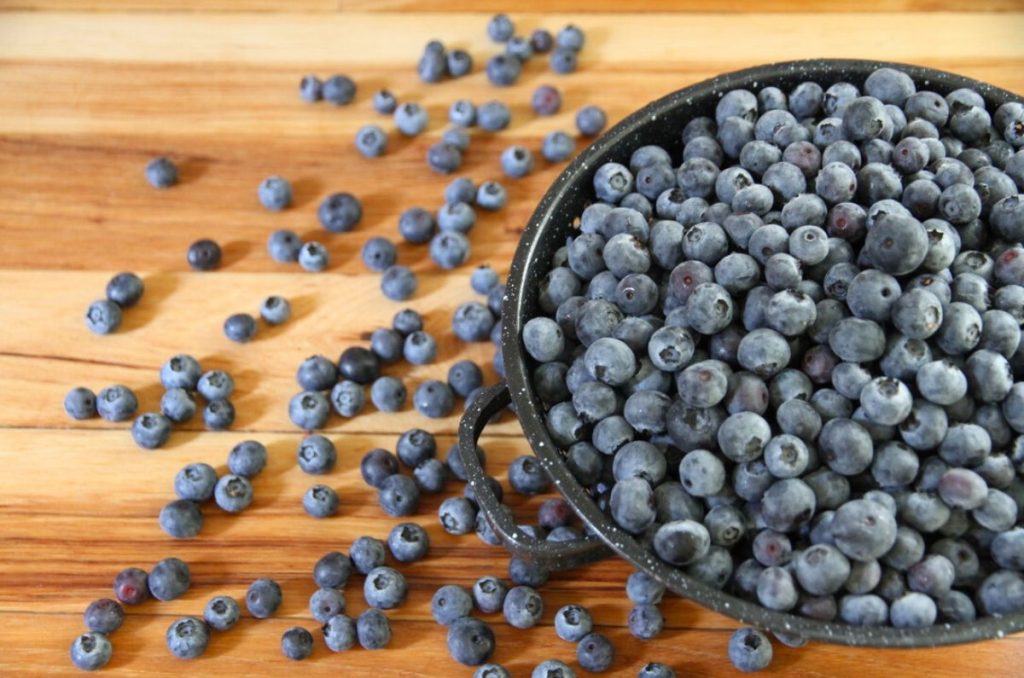
Here in my cottage kitchen, I love using blueberries in our baking and preserving efforts.
During blueberry season, we usually go to a small, local u-pick and harvest more than a few pounds of blueberries!
We always enjoy some of them while they're fresh. I like adding ripe blueberries to pancakes and smoothies. Homemade blueberry muffins and blueberry crisps are always a favorite! Baby girl especially loves having fresh berries as a snack.
But we don't just eat them fresh. Every summer, I always try to freeze blueberries in plastic freezer bags, so we have them on hand throughout the winter months. And then I can also make jam with them later in the year!
I think blueberries are one of the easiest fruits to freeze, because they hold their form well and don't absorb water when you rinse them (unless they're overripe).
Where to Find Fresh Blueberries
If you don't grow your own blueberries, you're not alone. I don't either! Though I did try.
When we first moved to our land, we test-planted a few of our own blueberry bushes in a hugelkultur-style berry patch we'd made. But blueberries have shallow roots and they didn't do well, because the soil kept settling and exposing the plant roots.
It was a shame, because we have the acidic soil that blueberries love so much!
Because I would really love to have my own blueberry harvest every year, I'm planning a new berry patch location for next spring, one where we can grow blueberry bushes with lots of fruit for the picking (and sharing).
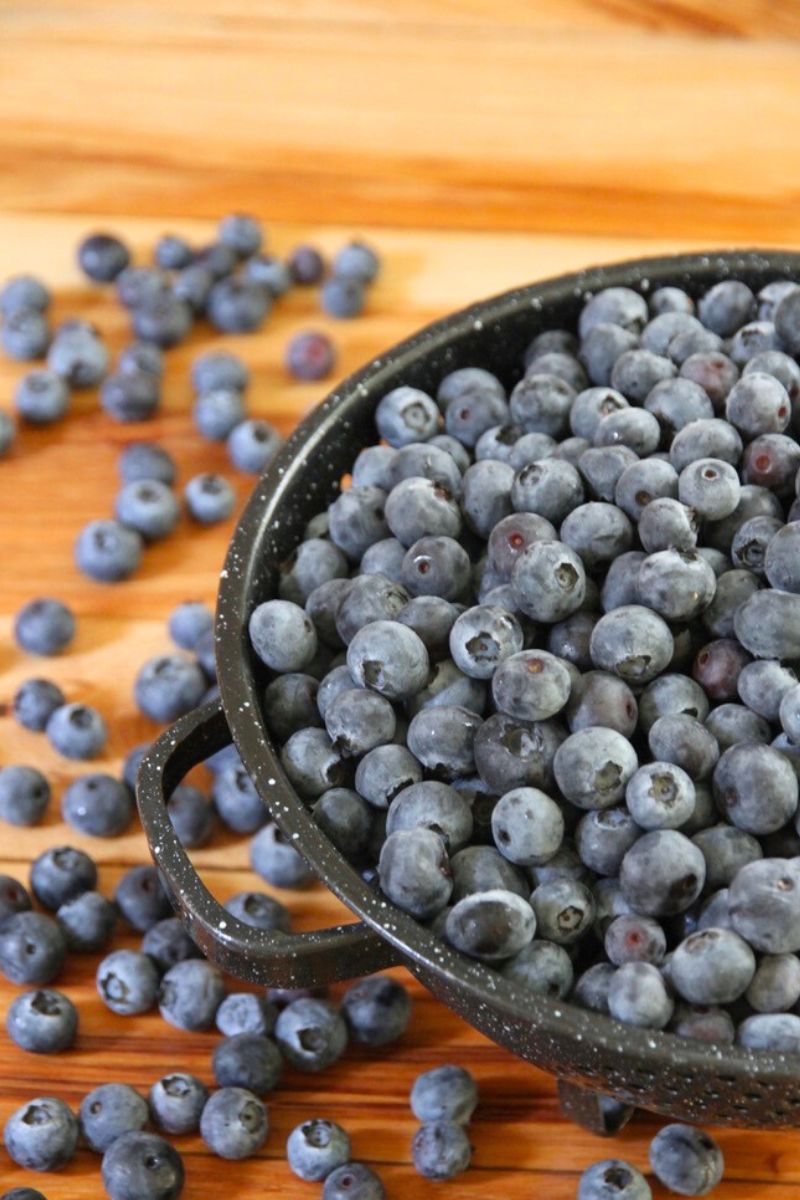
And actually, if you live in an urban area and would like to grow something, I think blueberries are a wonderful choice. The pretty little bushes are tidy and their foliage turns a pretty red in the fall. Just be sure to do your research and amend the soil, so you get lots of berries!
In the meantime, here's where you and I can find fresh blueberries.
- local farm or u-pick
- farmers market
- neighbors who don't have time to pick their own (put word out on your local buy and sell group to see if anyone would like to have you come pick)
- fruit stands
- grocery store (sometimes they bring in local blueberries in bulk)
Items You'll Need
- several pounds of fresh blueberries
- a colander
- freezer ziploc bags
- a freezer (of course!)
Easy Way to Freeze Fresh Blueberries
Step 1: Rinse Fresh Berries in Cold Water
Fresh picked blueberries are usually quite clean, so a quick rinse is all they need to remove dust and bug creatures (if present). Place berries in a colander and run cold water over them at the kitchen sink. About 20 seconds should do.
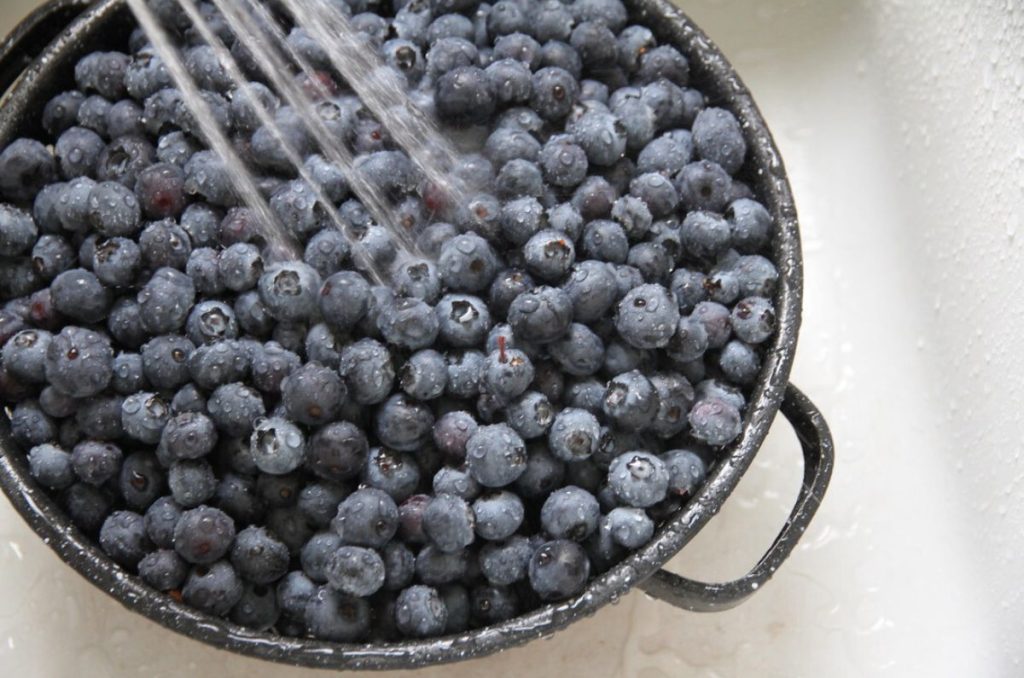
Step 2: Drain Blueberries of Water
After rinsing, I leave berries in the colander and let them drain for 30 seconds or so. To speed things up, you can spread rinsed blueberries out on a tea towel or clean dish towel and let them drain that way.
Step 3: Fill Plastic Bag with Blueberries
Unless you have very soft or overripe blueberries, drained blueberries can do go directly into your plastic freezer bags. A little water will go with them, but that's ok.
Unlike soft, juicy fruits, blueberries won't freeze into a block (unless they've overripe). As a rule of thumb, I fill my bags about 2/3 of the way.
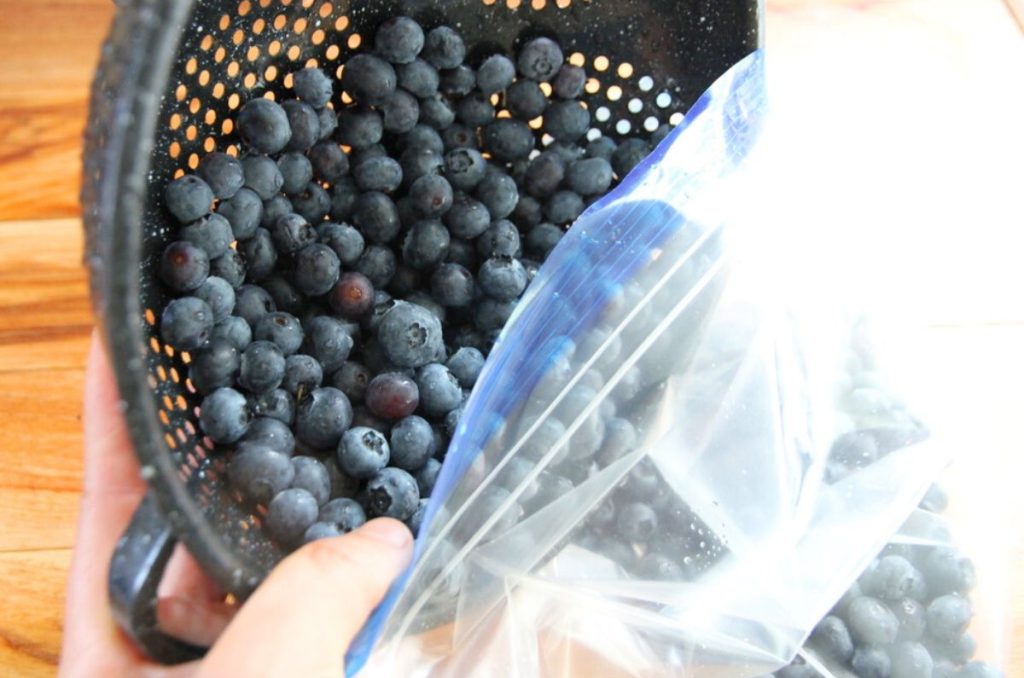
t's always a good idea to force as much air out of the bag as you can before sealing it up.
Note: if you are dealing with very ripe, juicy blueberries and you don't want them freezing in big clump, spread them in a single layer on a cookie sheet and freeze them first.
From there, you can bag them up and they'll remain loose in the bag.
But if you don't care about clumping with overripe berries, go ahead and measure several cups of blueberries into a bag. When you label the bag, note how many cups you put in and it will be easy to transfer frozen berries to recipes.

Step 4: Label the Bag and Freeze
If you freeze a lot of food (like I do), it's a good idea to label bags with food type and year. It'll make blueberries easy to find.
And if you come across a stray package in the bottom of your freezer later on, you'll know exactly how old they are.
Helpful Tips on Freezing Blueberries
- Before freezing, lay each ziploc bag on its side and evenly spread berries out, so you have a flat package to work with.
- Lay bags on their sides in the freezer, so berries harden in a flat, disc-like package.
- To speed the freezing process, be sure to spread bags of blueberries out in a single layer, so the cold can penetrate faster.
- Once your blueberries have frozen, stack the flat packages in a tidy manner to save on freezer space.
- Store all your bags of blueberries in one box for easy access and so they stay in one place.
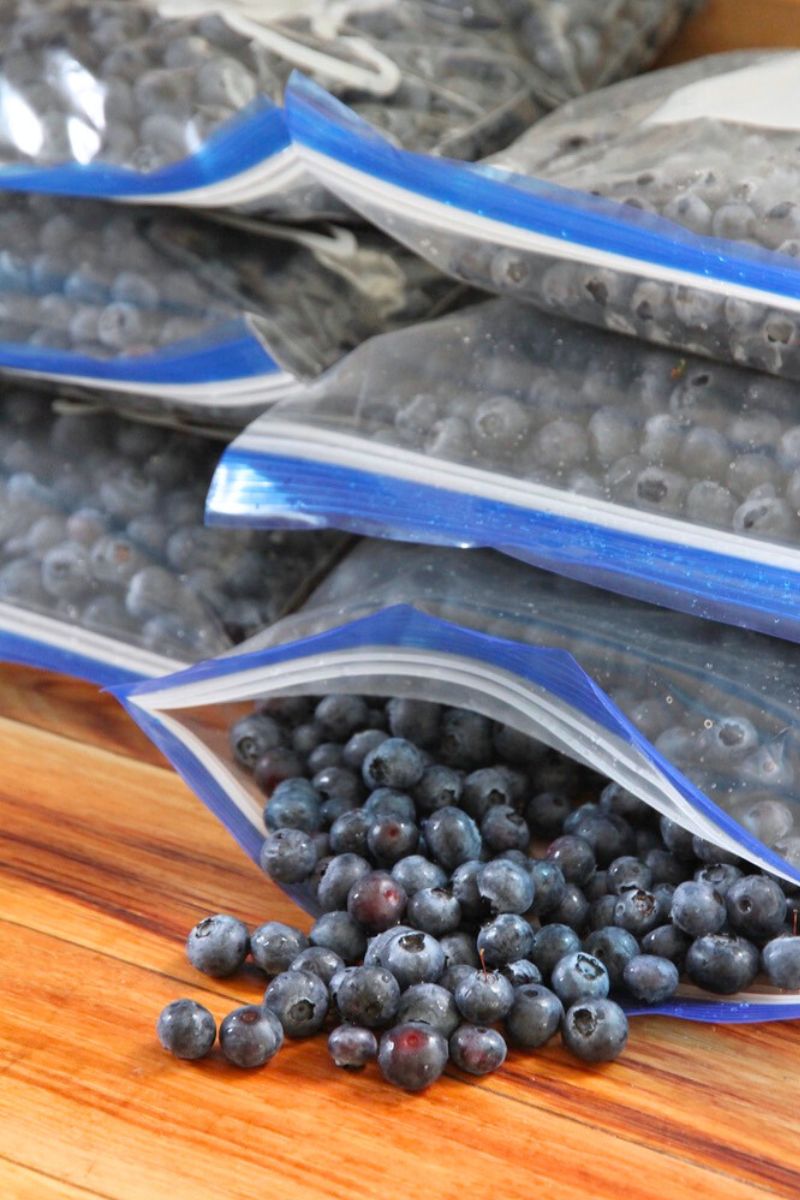
Freeze Life of Frozen Blueberries
If you have a deep freeze for storing blueberries (not just the freezer compartment on your fridge), and you bag them well, frozen blueberries should last 8 months or more. Of course, if you use a vacuum sealer, you'll get even longer freezer life from them.
Around here, I don't worry about the freezer lifespan. We use a lot of blueberries and it always seems no matter how bags I fill, we always work through them by the following spring!
Easy Ways to Use Frozen Blueberries
Frozen berries can measure out, cup for cup, just like fresh blueberries. Here are some wonderful ways to use them in your cooking, baking and preserving efforts.
- Hot blueberry sauce (for ice cream, pancakes or morning porridge)
- Overnight oats
- Blueberry pancakes
- Blueberry and banana smoothie
- Blueberry muffins
- Blueberry pie
- Blueberry crisp
- Blueberry jam
- Old fashioned blueberry vinegar
